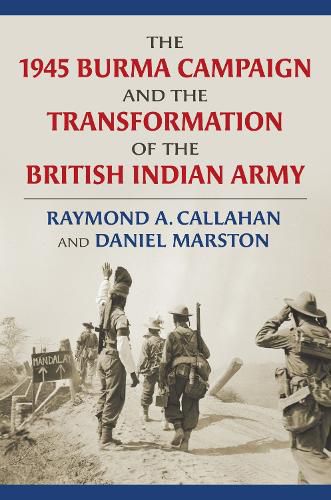Readings Newsletter
Become a Readings Member to make your shopping experience even easier.
Sign in or sign up for free!
You’re not far away from qualifying for FREE standard shipping within Australia
You’ve qualified for FREE standard shipping within Australia
The cart is loading…






In 1945, the Indian British XIV Army inflicted on the Imperial Japanese Army in Burma the worst defeat in its history. That campaign, the most brilliant and original operational maneuver conducted by any British general in the twentieth century, largely forgotten until now, is a full and fresh account utilizing a full range of materials, from personal accounts to archival holdings-including the bits the official historians left out, such as the attempt by a jealous British Guards officer to have Slim sacked at the conclusion of the campaign.
After the retreat from Burma in 1942, Lieutenant General Sir William Slim, commander of the British XIV Army, played a crucial role in the remarkable military renaissance that transformed the Indian Army and then, with that reborn army, won two defensive battles in 1944, and in the 1945 campaign shredded his Japanese opponents. Behind this dramatic story was another: the war marked the effective end of the Raj. This great transformation was, of course, brought about by many factors but not the least of them was the ‘Indianization’ of the Indian Army’s officer corps under the pressure of war. As Slim’s great victory signposted the change from the army Kipling knew to a modern army with a growing number of Indian officers, the praetorian guard of the Raj evaporated. ‘Every Indian officer worth his salt is a nationalist,’ the Indian Army’s commander-in-chief, Claude Auchinleck, said as the XIV Army took Rangoon.
The Burma campaign may not have contributed in a major fashion to the final defeat of Japan, but it was of first-rate importance in the transformation of South Asia, as well as underlining the continuing importance of inspired leadership in complex human endeavors.
$9.00 standard shipping within Australia
FREE standard shipping within Australia for orders over $100.00
Express & International shipping calculated at checkout
In 1945, the Indian British XIV Army inflicted on the Imperial Japanese Army in Burma the worst defeat in its history. That campaign, the most brilliant and original operational maneuver conducted by any British general in the twentieth century, largely forgotten until now, is a full and fresh account utilizing a full range of materials, from personal accounts to archival holdings-including the bits the official historians left out, such as the attempt by a jealous British Guards officer to have Slim sacked at the conclusion of the campaign.
After the retreat from Burma in 1942, Lieutenant General Sir William Slim, commander of the British XIV Army, played a crucial role in the remarkable military renaissance that transformed the Indian Army and then, with that reborn army, won two defensive battles in 1944, and in the 1945 campaign shredded his Japanese opponents. Behind this dramatic story was another: the war marked the effective end of the Raj. This great transformation was, of course, brought about by many factors but not the least of them was the ‘Indianization’ of the Indian Army’s officer corps under the pressure of war. As Slim’s great victory signposted the change from the army Kipling knew to a modern army with a growing number of Indian officers, the praetorian guard of the Raj evaporated. ‘Every Indian officer worth his salt is a nationalist,’ the Indian Army’s commander-in-chief, Claude Auchinleck, said as the XIV Army took Rangoon.
The Burma campaign may not have contributed in a major fashion to the final defeat of Japan, but it was of first-rate importance in the transformation of South Asia, as well as underlining the continuing importance of inspired leadership in complex human endeavors.